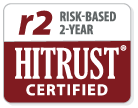By Matt Lambert, M.D., Chief Medical Officer – Curation Health
While I am a practicing clinician, I am a firm believer that improvements in healthcare most often come from borrowing the best ideas from other business models. For example, in a recent HIStalk article, I borrowed from software company and payer colleague insights to describe value-based care (VBC) reimbursement as a subscription model.
This model would provide more consistent revenue and allow organizations to better weather challenging times like a pandemic. For providers, this would allow freedom from the behavior required to drive fee-for-service (FFS) revenue and empower an approach to patient engagement that best addresses their needs. This is especially true when it comes to investing in social determinants of health (SDOH), which tends to lag the adoption of VBC.
It is my belief that organizations seeking to accelerate VBC adoption can achieve better clinical outcomes and lower cost by investing in SDOH in a way similar to how hedge funds leverage their portfolios. Hedge funds dedicate most of their resources to their primary area of focus but make smaller, strategic investments in other areas that enhance their overall performance.
Applying this hedge fund philosophy to VBC—applying 20 percent of subscription revenue to the social challenges of 20 percent of the patient population (Pareto’s principle) that drives the most cost, seems like a natural fit. Providing support for things such as rent, food, and transportation will do more to improve health and engage patients proactively than our current model of reactive patient care – while also lowering healthcare costs.
I acknowledge healthy skepticism about this approach since any hedge fund fraud makes headlines given the enormous sums of money involved. With that in mind, let me provide an example. Imagine a healthcare organization is at risk for $10 million to care for a specific population of patients with diabetes. With a hedge fund mentality, that organization would take $8 million and apply that to traditional care. The remaining $2 million would be focused specifically on SDOH by ensuring the patient population has affordable, healthy foods delivered to their home each week. This food delivery approach will help address patient diabetes in a more proactive manner, in a way that doesn’t drop a charge, and that investment will produce even greater returns in improved outcomes and decreased cost and utilization.
Albert Einstein told us, “we cannot solve our problems with the same thinking we used when we created them.”
It is critical that we continue to incorporate best practices from outside healthcare in order to build a stronger path to holistic, value-driven care. Applying a hedge fund mentality to healthcare will help providers and payers balance the need for resources to invest in social determinants of health, while also rewarding them for embracing the transition to value-based care. This approach can be especially applicable to home-based primary care.
To learn more – listen to our recent webinar – The New House Call: Tech-Enabled Care for Vulnerable Populations.

